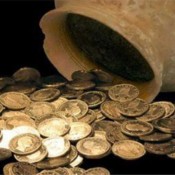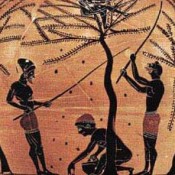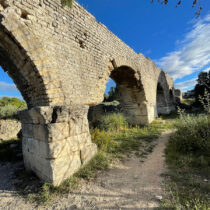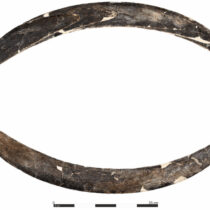The “Communities, Landscapes and Interaction in Neolithic Greece” conference aims to investigate our changing perceptions on Neolithic landscapes in Greece and to reconsider the dynamics of human-environment interactions. Key topics carefully selected to unfold and trigger discussions on the emerged diversity and variability of Neolithic societies in Greece are landscape, land use, palaeoenvironment, networks and connectivity. Emphasis is given to the interdisciplinary nature of research that can produce synthetic results.
The conference is organized as a final event for the project “IGEAN – Innovative Geophysical Approaches for the Study of Early Agricultural Villages of Neolithic Thessaly”, carried out by the Laboratory of Geophysics – Satellite Remote Sensing and Archaeo-environment (GeoSat ReSeArch) of the Institute for Mediterranean Studies – Foundation for Research and Technology (IMS-FORTH) in Crete in cooperation with the 13th Ephorate of Prehistoric and Classical Antiquities in Volos.
Call for Papers
The last three decades has been a period of growing archaeological activities in Greece that enhanced our awareness of the diversity and variability of ancient communities. In the context of large-scale excavations and systematic surface research our knowledge of the Neolithic archaeological landscape has changed considerably. New sites offer rich datasets from many aspects of material culture that challenge traditional perceptions and suggest complex interpretations of the past. Various scientific techniques have improved our understanding on the range of community formations and lifeways in the Neolithic. As a result, recent developments have created a need to discuss old and new data on a synthetic level and to reconsider the dynamics of human habitation in the region.
The Conference’s research aims are to investigate and record our changing perceptions of Neolithic landscapes in Greece and to reconsider the dynamics of human-environment interactions. Key research topics are human choices on landscape inhabitation and land use preferences. Discussions on subsistence, palaeoenvironment and paleoclimate also will add knowledge to our understanding of Greek Neolithic communities. The interaction between human choices and the natural environment will be explored with discussions about the variation in settlement organization demonstrated through various intra-site spatial layouts and recurrent community structures. By analyzing different aspects of material culture, conference participants will discuss the evidence for mobility of humans and goods, social interaction, and the creation of social networks among communities within and between different regions.
The interdisciplinary approach of the conference aims to gather researchers from various disciplines to discuss the contributions of their scientific research. Prominence will be given to work that demonstrates synthetic results that enhance the development of broad and multifaceted analyses of Neolithic narratives. Collaborative presentations are strongly encouraged. The conference is expected to continue and build on the debate of landscape, settlements patterns, and network relations and to attract papers that will tackle synthetic narratives of the Greek Neolithic based on old and new data and techniques. Presentations will be delivered in English. A printed version of the proceedings will be published shortly after the conference in order to share the results of the debate to a broader audience.
The conference will be organized based on several main themes:
-Communities: settlement patterns and organization, houses, households, intra-site spatial organizations and demarcation structures, enclosures.
-Landscapes: palaeoenvironment, palaeoclimate, pedological preferences, geomorphology, off-site land use and subsistence.
-Interactions: mobility, networks, exchange and material culture, connectivity.
The event will take place at the Conference Room of the Institute for Mediterranean Studies in Rethymno, Crete, on Friday 29th and Saturday 30th of May 2015. Oral presentation will not exceed 20 minutes with an additional 5 minutes for discussion. Posters are also welcome to provide an opportunity for preliminary research to be presented. Abstracts should not be longer than 400 words.
Deadline for abstract submission of paper proposals and posters: November 17, 2014.
Authors of accepted papers will be required to send a proceedings’ manuscript prior to the conference date. Attendance in the conference will be secured strictly upon the submission of the manuscript.





